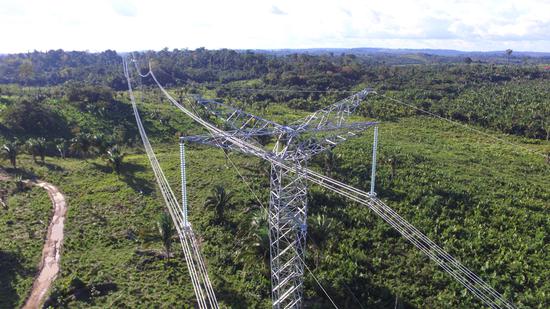China, Brazil strengthen cooperation with focus on digital economy and energy transition
(ECS) -- Over 70 percent of Brazil's soybean and iron ore sand exports in the first 10 months this year were destined for China, according to latest official statistics.
China has remained Brazil's largest trading partner and export destination for 15 consecutive years and it is the first country to surpass $100 billion in bilateral trade with Brazil.
Now, China and Brazil’s economic cooperation is expanding beyond traditional sectors in trade and investment, increasingly focusing on emerging fields such as the digital economy and energy transition.
China has invested in Belo Monte ultra-high-voltage transmission project and the Port of Açu power plant in Rio de Janeiro.
Chinese companies are also actively involved in Brazil’s renewable energy sector, contributing to energy projects such as hydropower, solar, and wind across the country.
Besides, China’s new energy vehicles (NEVs) are accelerating their entry into Brazil. BYD has opened stores in Bahia, while Great Wall Motors has established a factory in São Paulo.
Thanks to deepening cooperation between the two nations in the automotive sector, Brazil’s automobile industry is experiencing a resurgence. According to Brazilian Association of Automotive Vehicle Manufacturers, the highest monthly car sales in the country was achieved in October.
In addition, China and Brazil are achieving progress in building smart cities.
China’s telecommunications giant Huawei has deployed over 8,000 kilometers of fiber optic cables in Brazil's Amazon rainforest, addressing broadband accessibility issues. Meanwhile, China Telecom Brazil has established a network in São Paulo, providing services for businesses in both countries.
During Brazilian President Luiz Inacio Lula da Silva’s China visit last year, the two nations witnessed the signing of a series of cooperation agreements, with many related to digital economy, low-carbon development, and telecommunications.
In the face of sluggish global economic growth and escalating protectionism, strengthening economic partnership between China and Brazil not only creates new opportunities for their own development but also serves as a powerful driver for enhancing cooperation among nations in the Global South, fostering deeper connections and shared prosperity.

